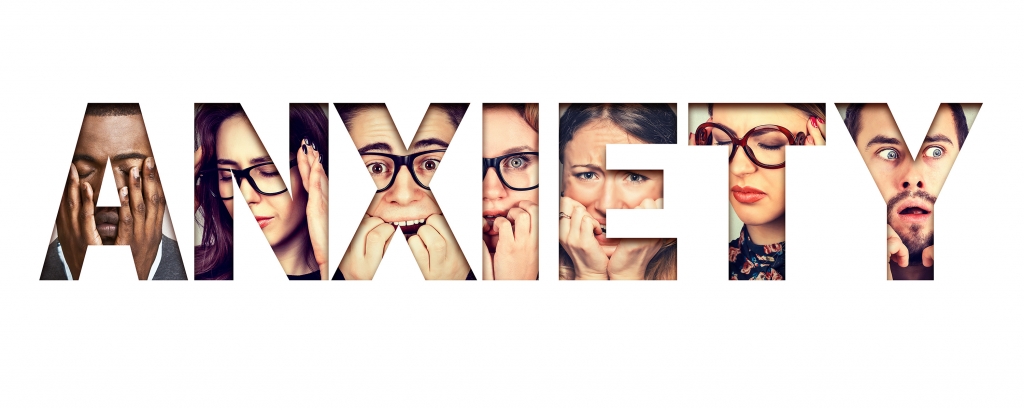3 Lifestyle Changes for Anxiety – How to Make Them Work for You
 Treatment for anxiety in San Diego runs far and wide. Some options are cutting edge and innovative, combining new medications with talk therapy, for example. Other options involve making seemingly rudimentary lifestyle changes for anxiety.
Treatment for anxiety in San Diego runs far and wide. Some options are cutting edge and innovative, combining new medications with talk therapy, for example. Other options involve making seemingly rudimentary lifestyle changes for anxiety.
As you may have imagined, there is a treatment to fit every lifestyle. What may come as a surprise, however, is that your lifestyle could actually be a defining point in your battle against anxiety.
When it comes to dealing with anxiety, the feeling of losing control often comes into play—racing thoughts, rapid heartbeat, quick breathing, etc. In short, anxiety can make you feel powerless.
To regain your personal power, you likely want something you can implement into your life…today!
Here are three simple yet effective lifestyle changes for anxiety you can make this week that will positively impact your state of mind.
Mindfulness Meditation
Touted worldwide, the practice of mindful meditation has created its own trend (and following). However, this concept is nothing new. In fact, it’s an ancient practice.
Many lifestyle changes for anxiety are beneficial. Yet, mindfulness meditation is especially helpful because it motivates your entire being to become anchored on the present moment.
Anxiety has a way of making you “live” in the past and the future—basically any other moment except the current one. This stressful way of living puts tremendous pressure on your mind and body.
Mindfulness meditation encourages those scattershot thoughts to cease. Plus, it’s not complicated to put into practice.
How to Make It Work for You
To begin your own mindfulness meditation practice, dedicate about 10 minutes to sit comfortably in a quiet space. Pay special attention to your body, especially your breathing pattern as you breathe naturally.
Your mind will likely become distracted away from your breath. That’s okay. Kindly allow these thoughts to pass through your mind, acknowledging them as they manifest. Let the peaceful sensations wash over you in the stillness of the moment.
Dedicate time each day to establish this habit. First thing in the morning and/or right before bed are both highly beneficial times.
Exercise
More than simply a way to tone your muscles, exercise has numerous benefits. Remember, making any one of these lifestyle changes for anxiety will produce immediate results—same day results, actually.
It only takes five minutes of heart-pumping exercise to produce anti-anxiety effects. The great thing about exercise is that it doesn’t matter what you do, what you wear, or how graceful you look.
When you move your body—jogging, playing with the dog, dancing around the house, etc.—the vigorous activity produces endorphins. These are natural painkillers which cause your body to instantly feel better. Which, helps to ward off anxiety.
Plus, exercise naturally motivates more mindful living by honing in on your bodily movements, breathing, and blood-flowing sensation. And, it’s an excellent means for positive distraction.
How to Make It Work for You
It’s easier than you think to make this lifestyle change. Try to get your heart pumping by doing an aerobic activity for at least 15 minutes a day.
As mentioned, this could be dancing to your favorite song in the kitchen or chasing the dog in the backyard. Jumping jacks will work, too. No need for a gym membership or special equipment.
In fact, short bursts of aerobic activity have proven to be just as beneficial to your mental health as longer exercise sessions.
If you feel that your life is too harried or you have trouble remembering to do it, schedule your 15-minute blocks of exercise using your phone or an alarm. After all, it’s easier to stop and refocus with an alarm demanding your attention. When your alarm goes off, stop to do a 15-minute session of aerobic activity.
Sleep
Those who struggle with anxiety don’t typically have restful sleep. You may experience insomnia, worrisome thoughts, or muscle tension that makes quality sleep nearly impossible.
Sleep is often referenced as a luxury—”I’ll sleep when I’m dead.” Its restorative properties are frequently overlooked as well. Yet, few lifestyle changes for anxiety are more impacting that getting quality sleep.
For one, your body needs it for cell reproductive, stimulating healing and proper organ function. Plus, quality sleep recharges your brain, motivating better concentration and a more positive mood. Additionally, getting adequate sleep helps to redirect stress and anxiety elsewhere.
How to Make It Work for You
Making lifestyle changes for anxiety can be challenging when you don’t have a definite game plan. This goes for being deliberate about the sleep you’re getting (or not getting), too.
For starters, begin to implement a new bedtime routine. For example, turn off all devices an hour before bed—TV, cell phone, e-reader, etc. Take time before bed simply to practice self-care doing meaningful activities that promote relaxation such as reading, journaling, or listening to calm music.
There are even apps to help you start and follow through on a daily bedtime routine.
Also, get to bed at a decent hour. Adults need 7-9 hours of quality sleep. With the electric distractions turned off, this should be easier. If your mind is still rushing or worrying about a to-do list, keep a notebook by your bedside on which to jot your thoughts down.
Consider that when you implement one of the three mentioned, the other two often follow. Which can motivate you to stick with your new positive anti-anxiety habits.
—
In looking for effective treatment for anxiety in San Diego, please contact us today. We would like to help.
In addition to making lifestyle change for anxiety, please visit the page above to learn more about our services.
